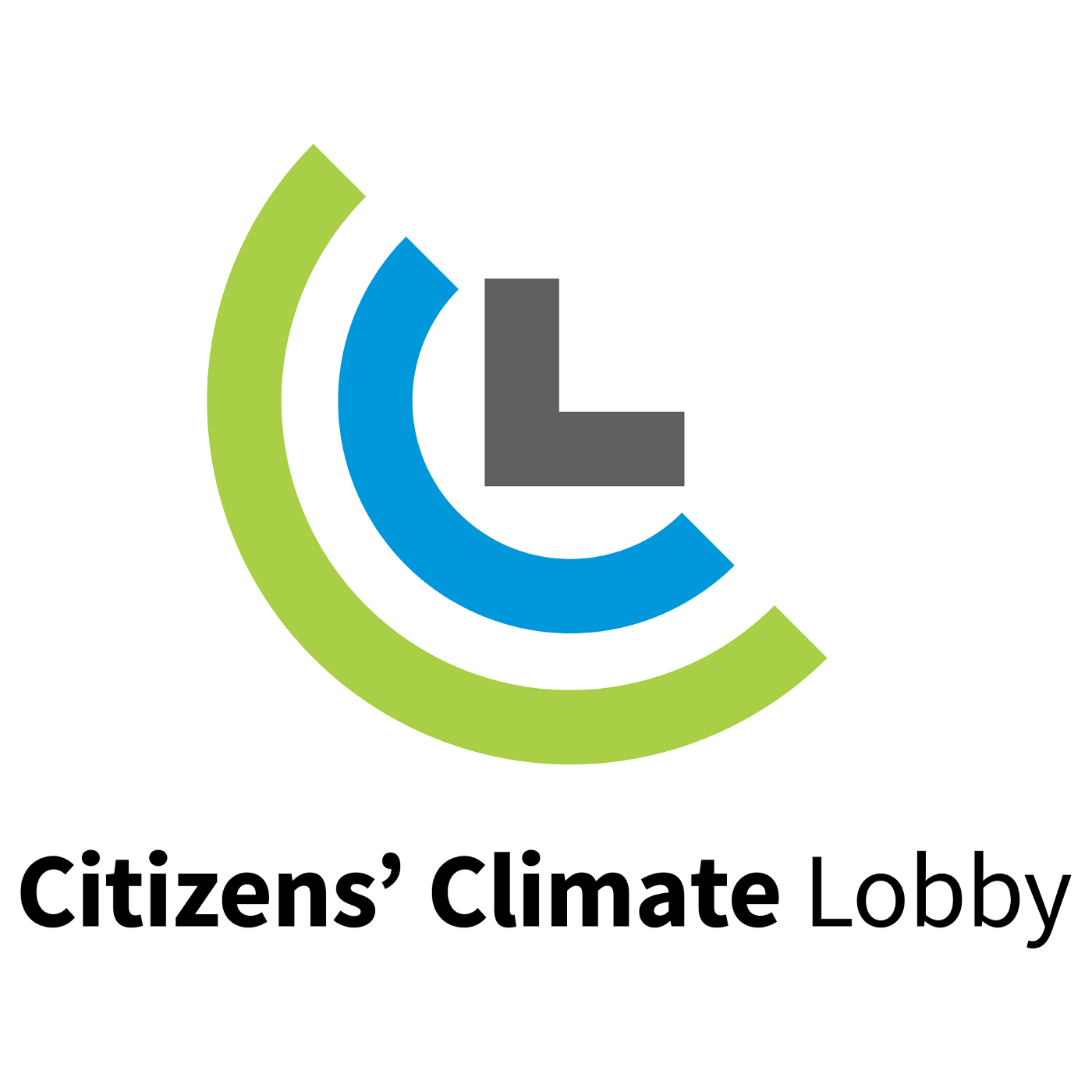Episodes
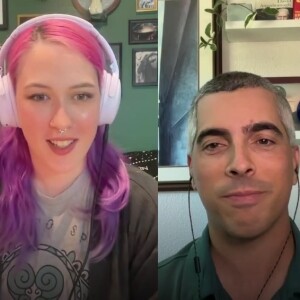
Thursday Jun 19, 2025
Thursday Jun 19, 2025
In Citizens Climate Radio's newest installment of our policy series, hosts Elissa Tennant and Dana Nuccitelli dive deep into the latest updates from Capitol Hill. With the Senate Finance Committee’s budget proposal now public, they unpack what it means for the clean energy tax credits created by the Inflation Reduction Act.
How do the House and Senate versions compare? What would repealing these tax credits cost American households and jobs? What role does energy security—and even AI—play in the clean energy conversation? Elissa and Dana bring clarity to a complex policy moment and offer listeners tangible next steps for action.
You’ll also hear about upcoming CCL leadership changes, summer conference plans, and two thoughtful listener voicemails—including one from someone who really wants to bring back Energy Star.
🎧 Topics Covered:
-
Senate vs. House proposals on clean energy tax credits
-
The mysterious “bird bath” process
-
Projected increases in household energy costs
-
Threats to clean energy manufacturing and jobs
-
What to expect next in Congress
-
How you can make your voice heard
📞 Call or text us with your questions or comments: +1 (619) 512-9646
🗳️ Take action to defend clean energy tax credits: https://cclusa.org/IRAdefense
🎟️ Join us at the Summer Conference in Washington, D.C., July 20–22: https://cclusa.org/conference
🎙️ Citizens Climate Radio is a project of Citizens’ Climate Education.
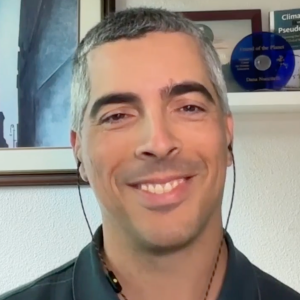
Tuesday May 06, 2025
Tuesday May 06, 2025
In this episode of Citizens Climate Radio, we dive into the Inflation Reduction Act (IRA)—the biggest climate legislation in U.S. history—and the urgent effort underway to protect its clean energy tax credits.
CCL’s Content Marketing Manager Elissa Tennant joins CCL’s Research Manager Dana Nuccitelli to break it all down. You’ll learn what the IRA funds, how clean energy tax credits work for individuals and businesses, and why these programs are now under threat. Dana also explains the budget reconciliation process, the challenges in Congress, and the surprising level of bipartisan public support for clean energy investment.
You'll leave this episode knowing exactly why the IRA matters—and what simple actions you can take to defend it.
Featured Guests:
- Elissa Tennant is CCL’s Content Marketing Manager, leading strategy and creation for web, social media, and volunteer resources.
- Dana Nuccitelli is CCL’s Research Manager, an environmental scientist, and an award-winning climate journalist with a background in physics and over a decade of science communication experience.
Looking for a full transcript and more, visit www.cclusa.org/radio
Resources Mentioned:
- 📄 Take action to defend clean energy tax credits: cclusa.org/IRAdefense
- 📅 Register for the 2025 Citizens' Climate Lobby Summer Conference: cclusa.org/conference
- 🌟 Get involved with other climate actions: cclusa.org/action
- 🦖 Schoolhouse Rock: Tyrannosaurus Debt (explainer video): Watch on YouTube
- 🧠 Join CCL’s Nerd Corner (for policy deep dives): CCL Community - Nerd Corner
Highlights:
- Why the Inflation Reduction Act focuses so heavily on clean energy.
- What “tax credits” mean for individuals, businesses, and the broader economy.
- How budget reconciliation works—and why it's mostly a partisan process today.
- Why Republicans and Democrats alike have reasons to support clean energy tax credits.
- How CCL volunteers are defending climate investments—and how you can help.
We Want to Hear from You
Email: radio @ citizensclimate.org
Text/Voicemail: 619-512-9646
Social Media: Follow us on X, Instagram, LinkedIn, Facebook, and TikTok.
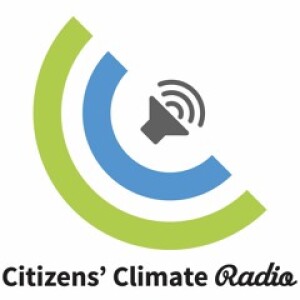
Friday Apr 18, 2025
Friday Apr 18, 2025
In this episode of Citizens Climate Radio, Elise Silvestri explores how art can strengthen climate advocacy with Carrie Ziegler, an interdisciplinary Artist, Speaker, and Community Engagement Expert. Carrie talks about her process for creating and executing the Chrysalis Project: Transforming Together, an art and climate policy project that enacted powerful change over Zoom during the COVID-19 pandemic. One of the participating students, Brisa Sabel, shares her experience of the successful campaign and the joy and inspiration it gave her.
Peterson Toscano has a surprisingly good news story: like our responses to climate change, the format of CCR is adapting! [insert finalized details here]
Listen to Carrie Ziegler discuss the power of art storytelling in making meaningful, local climate policy.
Guest Bio: Carrie Ziegler
Carrie Ziegler harnesses the collective power of art to drive social and environmental transformation. Through her Art in Action initiatives, she collaborates with diverse entities—local governments, organizations, schools, and universities—to create multi-dimensional works that blend participant creativity with pressing societal issues. These projects inspire active engagement, bringing communities together to create lasting change. Along with the Chrysalis Project, Carrie also led the Plastic Whale Project, where students created a life-sized whale out of plastic bags. The whale played a pivotal role in successfully passing a ban on single-use plastic bags in Olympia, Lacey, Tumwater, and Thurston County, Washington.
Based in Olympia, Washington, Carrie is recognized internationally, bringing her impactful vision to global forums, including Aotearoa (New Zealand), Ghana, France, Mexico, and Canada. She empowers Artists and Change Makers to maximize their societal impact through art, inspiring a broader movement of change driven by creativity. Complementing her hands-on work, Carrie is penning her inaugural book, Eclosion: An Artist’s Path to Power and Peace. In this work, she intertwines her memoir with a practical guide for unleashing personal and collective potential, offering a blueprint for transformative change through art—a light for a world in desperate need of inspiration.
Check out her work on her Instagram, @carriezieglerart.
🎧 Listen & Subscribe: Find us wherever you get your podcasts or visit cclusa.org/radio
Listener Survey
We want to hear your feedback about this episode. Please fill out our short survey.
Join the Conversation
Engage with other listeners and share your thoughts on our social media channels. Follow and connect with us on X, Instagram, LinkedIn, Facebook, and TikTok.
Tune in next month for more inspiring stories, expert insights, and actionable climate solutions. Together, we can make a difference, one story at a time.
We Want to Hear from You
- Email: radio @ citizensclimate.org
- Text/Voicemail: 619-512-9646 (+1 if calling from outside the USA.)
Production Team:
- Written and produced by Peterson Toscano and Elise Silvestri
- Social Media Assistance: Flannery Winchester
Music is provided by epidemicsound.com and Elise Silvestri
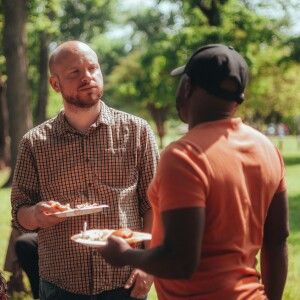
Friday Mar 07, 2025
Friday Mar 07, 2025
In this episode of Citizens Climate Radio, co-hosts Peterson Toscano and Elise Silvestri dive into the pressing issue of climate anxiety with Kate Schapira, creator of the Climate Anxiety Counseling Booth in Providence, Rhode Island. Kate shares her decade-long journey of listening to people’s climate worries, how she transformed these conversations into actionable climate engagement, and the insights she presents in her book, Lessons from the Climate Anxiety Counseling Booth: How to Live With Care and Purpose in an Endangered World.
This episode also features an inspiring good news story: a group of students in Tucson, Arizona, successfully passed a climate action resolution for their school district, securing funding for sustainability initiatives and setting an example for youth-led climate action.
Tune in to learn how listening, storytelling, and collective action can transform climate despair into meaningful change.
Guest Bio: Kate Schapira
Kate Schapira is a writer, educator, and climate listener based in Providence, Rhode Island. Since 2014, she has operated the Climate Anxiety Counseling Booth, a public listening project where she invites people to share their climate concerns, anxieties, and hopes. Her deep engagement with these conversations has informed her approach to climate action—centering community, emotional resilience, and meaningful steps toward change.
Kate is the author of Lessons from the Climate Anxiety Counseling Booth: How to Live With Care and Purpose in an Endangered World, where she explores how individuals and communities can navigate climate anxiety through connection and activism. She teaches writing at Brown University and works with organizations such as Alliance to Mobilize Our Resistance (AMOR) and the People’s Port Authority Movement.
Find more about Kate’s work at KateSchapira.com.
Links
- Read Kate’s book: Lessons from the Climate Anxiety Counseling Booth
- Explore the Tucson Unified School District’s Climate Action Resolution
🎧 Listen & Subscribe: Find us wherever you get your podcasts or visit cclusa.org/radio
Listener Survey
We want to hear your feedback about this episode. Please fill out our short survey.
Join the Conversation
Engage with other listeners and share your thoughts on our social media channels. Follow and connect with us on X, Instagram, LinkedIn, Facebook, and TikTok.
Tune in next month for more inspiring stories, expert insights, and actionable climate solutions. Together, we can make a difference, one story at a time.
We Want to Hear from You
- Email: radio @ citizensclimate.org
- Text/Voicemail: 619-512-9646 (+1 if calling from outside the USA.)
Production Team:
- Written and produced by Peterson Toscano and Elise Silvestri
- Social Media Assistance: Flannery Winchester
- Music is provided by epidemicsound.com and Elise Silvestri

Friday Jan 24, 2025
Hot Mess Part Eight: Climate Conservatives—Now What?
Friday Jan 24, 2025
Friday Jan 24, 2025
In the eighth and final episode of Hot Mess: How Climate Consensus Turned Into Political Chaos, we bring together a powerhouse panel of conservative leaders and thinkers to reflect on the series and chart a path forward. Former Republican Congressman Bob Inglis, Chelsea Henderson (host of EcoRight Speaks), and Katie Zakrzewski and Zach Torpie (hosts of Green Tea Party Radio) join host Peterson Toscano to explore cultural and political factors shaping the conservative climate movement. Later, Peterson speaks with Drew Eyerly, Citizens Climate Lobby’s Conservative Outreach Director, about how conservatives are creating solutions and opportunities for climate action. This episode provides insights, inspiration, and a roadmap for bipartisan collaboration on climate solutions.
Featured Guests:
-
Bob Inglis:
Former Republican Congressman and Executive Director of republicEn.org. Bob is a recipient of the John F. Kennedy Profile in Courage Award and a prominent voice in conservative climate action. He appears in the acclaimed documentary Merchants of Doubt, which examines the role of misinformation in climate skepticism. -
Chelsea Henderson:
Director of Editorial Content at republicEn.org, host of the EcoRight Speaks podcast, and author of Glacial: The Inside Story of Climate Politics. Chelsea is a seasoned advocate for bipartisan climate solutions with nearly 25 years of experience bridging divides on Capitol Hill. -
Katie Zakrzewski:
Co-host of Green Tea Party Radio, journalist, and environmental advocate. Katie highlights the economic and national security implications of climate action, emphasizing the importance of engaging young conservatives in the climate conversation. -
Zach Torpie:
Environmental engineer and co-host of Green Tea Party Radio. Zach focuses on pragmatic climate solutions and envisions an America that leads the way in addressing climate challenges while preserving natural beauty and economic stability. -
Drew Eyerly:
Conservative Outreach Director for Citizens Climate Lobby. Drew’s climate advocacy is fueled by his desire to create a sustainable future for his daughter. He champions economic and national security benefits of climate action and leads efforts to engage conservative voices in climate policy.
Compelling Quotes:
- Bob Inglis: “Very few people are still arguing with thermometers. The challenge now is showing people there are solutions that align with conservative values.”
- Chelsea Henderson: “We can’t think about climate change as just an environmental issue—it’s an economic issue, a national security issue, and a pro-life issue.”
- Drew Eyerly: “Every issue is an opportunity. Climate action can stimulate the economy, create jobs, and strengthen national security.”
Links and Resources Mentioned:
- republicEn.org – Learn more about Bob Inglis and Chelsea Henderson’s work.
- EcoRight Speaks Podcast – Hosted by Chelsea Henderson, exploring conservative climate perspectives.
- Green Tea Party Radio – A weekly podcast hosted by Katie Zakrzewski and Zach Torpie, showcasing conservative climate solutions.
- Citizens Climate Conservatives – Engage with conservative climate advocates at Citizens Climate Lobby.
- Merchants of Doubt – Documentary featuring Bob Inglis, available online and through major streaming platforms.
Episode Highlights:
- A deep dive into the cultural, political, and economic factors shaping conservative climate solutions.
- The panel discusses the role of misinformation, cultural apathy, and economic fears in delaying climate action.
- Reflections on missed opportunities and reasons for optimism moving forward.
- Drew Eyerly shares how conservatives can leverage their values to lead on climate solutions, emphasizing bipartisan collaboration.
Credits:
Hot Mess: How Climate Consensus Turned Into Political Chaos is a production of Citizens Climate Radio, a project of Citizens Climate Education.
Research and Editorial Team: Horace Mo, Lily Russian, Peterson Toscano, Flannery Winchester, Elise Silvestri, and Brett Cease.
Production: Peterson Toscano with Elise Silvestri.
Music: Epidemic Sound and Elise Silvestri.
Disclaimer:
The views expressed by our guests do not necessarily reflect those of Citizens Climate Education.
Listen to the Full Series:
Visit Citizens Climate Radio or subscribe wherever you get your podcasts.

Thursday Jan 16, 2025
Hot Mess Part Seven: Climate Skepticism—A Global Comparison
Thursday Jan 16, 2025
Thursday Jan 16, 2025
In this penultimate episode of Hot Mess: How Climate Consensus Turned Into Political Chaos, we expand our focus beyond the United States to explore the global landscape of climate skepticism. Climate denial is not just an American phenomenon but takes on unique forms in different nations, influenced by cultural, political, and economic factors. We compare the deeply entrenched skepticism in the U.S. with the varied approaches seen in countries like China, Germany, Australia, and South Korea, shedding light on what drives climate attitudes worldwide.
Featuring insights from four dynamic voices, this episode delves into how media, education, and policy influence public perception, and what lessons can be learned from global successes and failures in addressing climate change.
Key Topics Covered:
- The roots of climate skepticism in the United States and its global parallels.
- How countries like Germany and South Korea have avoided widespread denial while the U.S. and Australia continue to struggle.
- The transformative power of education and infrastructure, as seen in China’s rapid advancements.
- Faith and climate action in the U.S., with a focus on how the Catholic Church has responded to Laudato Si’.
- Conservative approaches to climate solutions and the role of young conservatives in shifting the conversation.
Featured Guests:
- Katie Zakrzewski: Co-host of Green Tea Party Radio and a young conservative from the South, Katie provides a deep dive into climate skepticism in the U.S. and contrasts it with Europe and beyond.
- Horace Mo: Former Citizens Climate Radio intern, Horace shares his experiences growing up in China and reflects on the nation’s ambitious strides in renewable energy and urban planning.
- Jose Aguto: Climate advocate and former Associate Director of the Catholic Climate Covenant, Jose discusses the global Catholic response to climate change and the unique challenges faced by the U.S. Church.
- Zach Torpie: Co-host of Green Tea Party Radio, Zach highlights how young conservatives are driving forward-thinking climate solutions and pushing for energy independence through renewables.
Compelling Quotes:
- “In China, climate education is part of the curriculum from an early age. It’s consistent and woven into what we learn about the world.” — Horace Mo
- “The broader cultural divides in the U.S. affect how climate action is viewed even within faith communities.” — Jose Aguto
- “Young conservatives see renewables as competitive, low-impact, and a way to outcompete China in the global market.” — Zach Torpie
Organizations and Resources Mentioned:
- Citizens’ Climate Lobby Action Page: cclusa.org/action
- Catholic Climate Covenant: catholicclimatecovenant.org
- Green Tea Party Radio: Available wherever you get podcasts.
- Yale Program on Climate Change Communication: climatecommunication.yale.edu
- BTS Center’s Climate Changed Podcast: Visit Climate Changed Podcast
Join the Conversation
Engage with other listeners and share your thoughts on our social media channels. Follow and connect with us on X, Instagram, LinkedIn, Facebook, and TikTok.
Tune in next month for more inspiring stories, expert insights, and actionable climate solutions. Together, we can make a difference, one story at a time.
We Want to Hear from You
- Email: radio @ citizensclimate.org
- Text/Voicemail: 619-512-9646 (+1 if calling from outside the USA.)
Credits
- Research: Horace Mo Mo, Lily Rushen, Peterson Toscano
- Editorial Assistance: Flannery Winchester, Elise Silvestri, Brett Cease
- Production: Peterson Toscano, Elise Silvestri
Music: Our theme music is Chasing Stories by Elise Silvestri. Other music byEpidemic Sound.
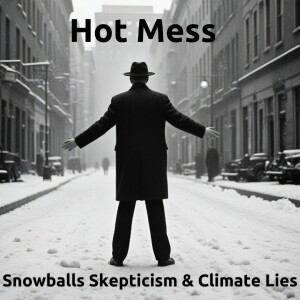
Monday Dec 30, 2024
Hot Mess Part Six: Snowballs, Skepticism, and Climate Lies
Monday Dec 30, 2024
Monday Dec 30, 2024
In Hot Mess Part Six: Snowballs, Skepticism, and Climate Lies, we uncover the deliberate tactics used to mislead the public about climate change, highlighting key players like the Koch brothers and Senator James Inhofe, alongside truth-tellers like former Representative Bob Inglis. The episode examines how misinformation campaigns, economic fearmongering, and symbolic stunts, such as Senator Inhofe’s infamous snowball moment, undermined climate science and bipartisan efforts for climate solutions. Featuring insights from guests Chelsea Henderson and Katie Zakrzewski, the episode delves into the emotional and cultural barriers to climate action and explores how understanding these dynamics can foster a path toward bipartisan collaboration and meaningful solutions.
Guest Profiles
-
Chelsea Henderson
- Host of EcoRight Speaks Podcast and author of The Inside Story of Climate Politics.
- Chelsea provides in-depth analysis of how the Koch brothers funded a web of organizations to sow doubt about climate science and resist regulatory action.
-
Katie Zakrzewski
- Co-host of Green Tea Party Radio.
- Katie critiques how Senator Inhofe’s snowball stunt became a rallying cry for climate denial and explores the emotional resonance of his rhetoric with conservative audiences.
-
Representative Bob Inglis
- Former Republican Congressman from South Carolina and Executive Director of RepublicEn.
- Bob shares his personal journey from climate skeptic to advocate, emphasizing how conservative values align with environmental stewardship.
Compelling Quotes
-
Chelsea Henderson:
"The Koch brothers conned millions into believing polluters shouldn’t be held accountable for their pollution while everyday Americans pick up the tab." -
Katie Zakrzewski:
"He sure did undo 30 to 50 years of science by throwing a snowball. It’s the equivalent of saying world hunger isn’t real because I just ate lunch." -
Representative Bob Inglis:
"Protecting the vulnerable is loving God and loving people. Surely, that’s what climate action is about."
Groups, Resources, and Historical Moments Referenced
-
Organizations:
-
Historical Moments:
- Senator James Inhofe’s snowball stunt (2015)
- The Koch brothers’ influence from the Kyoto Protocol (1997) to the present
-
Media:
- C-SPAN for archival footage of Senator Inhofe’s snowball incident
- Michelle Malkin’s Hot Air show for Inhofe’s comments on Al Gore and climate change

Friday Dec 13, 2024
Hot Mess Part Five: The Emotional Web of Climate Skepticism
Friday Dec 13, 2024
Friday Dec 13, 2024
This episode of Hot Mess: How Climate Consensus Led to Political Chaos explores the emotional and psychological forces that fueled climate skepticism and the role of media and fossil fuel interests in amplifying doubt. It examines how the once bipartisan approach to climate action fractured, with key players like conservative media and environmental activists shaping public perceptions. The episode highlights how emotional manipulation and misinformation campaigns delayed meaningful climate action and offers insights into reclaiming the narrative for a bipartisan path forward.
Guest Descriptions
-
Chelsea Henderson
- Host of RepublicEn's Eco Right Speaks Podcast.
- Author of Glacial: The Untold Story of Climate Politics.
- Chelsea provides a deep dive into the role of conservative media in spreading climate skepticism and the political challenges surrounding cap-and-trade policies.
-
Katie Zakrzewski
- Co-host of Green Tea Party Radio.
- Katie discusses how fear-based environmental messaging and divisive protest strategies alienated potential allies, leading to unintended negative impacts.
Links to Organizations Mentioned
-
RepublicEn: https://republicen.org
- Home of Eco Right Speaks Podcast.
-
Green Tea Party Radio: https://greenteapartyradio.com
-
Union of Concerned Scientists: https://www.ucsusa.org
-
Citizens Climate Education: https://citizensclimateeducation.org
-
Inside Climate News: https://insideclimatenews.org
-
The Guardian’s Climate Reporting: https://theguardian.com/environment
Three Compelling Quotes
-
Chelsea Henderson:
"Rush Limbaugh didn’t just challenge climate science; he weaponized it to dismantle bipartisan efforts, turning climate action into a partisan battleground." -
Katie Zakreski:
"Fear-based environmental messaging created not action but paralysis—fueling despair rather than empowering solutions." -
Peterson Toscano:
"By exploiting our emotional vulnerabilities, the fossil fuel industry delayed action and protected profits at the expense of the planet."
Join the Conversation:
Follow and engage with us on X, Instagram, LinkedIn, Facebook, and TikTok. Share your thoughts and join the discussion using #CitizensClimateRadio.
Call or text our listener voicemail line: (619) 512-9646 (+1 if calling from outside the USA).
Email us at radio @ citizensclimate.org.
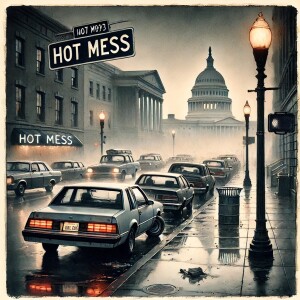
Friday Nov 29, 2024
Hot Mess Part Four: The 1990s: When Climate Change Became a Partisan Issue
Friday Nov 29, 2024
Friday Nov 29, 2024
By the 1990s, momentum for climate action was growing, but so was opposition. In Episode 4 of Hot Mess: How Climate Consensus Turned Into Political Chaos, host Peterson Toscano examines how fossil fuel interests, economic priorities, and cultural shifts began to unravel bipartisan efforts. Featuring insights from Chelsea Henderson and Katie Zakrzewski, this episode dives into the psychological and cultural barriers that fueled climate skepticism, the emergence of echo chambers, and the rise of polarization. Despite these challenges, the episode highlights leaders like Senator John McCain, whose bipartisan efforts provided hope for climate solutions.
Key Topics:
- The cultural and psychological roots of climate skepticism in the 1990s.
- How values of individualism and economic freedom clashed with environmental regulation.
- The role of cognitive dissonance and echo chambers in shaping public opinion.
- The rise of Senator John McCain as a climate advocate.
- Insights into the McCain-Lieberman Climate Change Bill of 2003.
Featured Guests:
- Chelsea Henderson: Host of Eco Right Speaks and author of Glacial: The Inside Story of Climate Politics.
- Katie Zakrzewski: Co-host of Green Tea Party Radio and climate advocate.
Standout Quotes:
- Katie Zakrzewski: "This is where the polarization really begins...economic priorities took precedence, creating a divide between regulation and free-market values."
- Chelsea Henderson: "John McCain made a promise to New Hampshire voters: I will learn about climate change, and he kept his word."
Episode Highlights:
- [00:02:15] How cultural values in the 1990s paved the way for climate skepticism.
- [00:06:30] The role of cognitive dissonance and confirmation bias in resisting climate science.
- [00:15:40] The bipartisan McCain-Lieberman Climate Change Bill and its challenges.
- [00:20:50] Katie Zakrzewski’s perspective on the importance of engaging conservatives in climate action.
Call to Action
Want to learn how you can get involved in bipartisan climate solutions? Visit cclusa.org/action. If you enjoyed this episode, please share it with friends or on social media. Every share helps inspire more people to take meaningful action on climate change.
Join the Conversation
Engage with other listeners and share your thoughts on our social media channels. Follow and connect with us on X, Instagram, LinkedIn, Facebook, and TikTok.
Tune in next month for more inspiring stories, expert insights, and actionable climate solutions. Together, we can make a difference, one story at a time.
We Want to Hear from You
- Email: radio @ citizensclimate.org
- Text/Voicemail: 619-512-9646 (+1 if calling from outside the USA.)
Credits
- Research: Horace Mo Mo, Lily Rushen, Peterson Toscano
- Editorial Assistance: Flannery Winchester, Elise Silvestri, Brett Cease
- Production: Peterson Toscano, Elise Silvestri
Music: Our theme music is Chasing Stories by Elise Silvestri. Other music byEpidemic Sound.

Friday Nov 01, 2024
Friday Nov 01, 2024
Introduction
In this episode of Hot Mess: How Climate Consensus Turned Into Political Chaos, Peterson Toscano introduces us to Marshall Saunders, a man whose unexpected journey from a Texas businessman to a climate advocate sparked a powerful movement. Saunders, the founder of Citizens Climate Lobby, channeled his skills and personal growth into creating a grassroots organization that has inspired climate action across the political spectrum.
Hot Mess is a six-part series hosted by Peterson Toscano that uncovers the untold stories behind the rise and fall of bipartisan efforts to address climate change in the United States.
Key Themes
- The personal transformation of Marshall Saunders.
- The founding of Citizens Climate Lobby (CCL).
- Citizen-driven advocacy and bipartisan climate solutions.
- Using market-based approaches to address climate change.
Featured Guests
Marshall Saunders
Marshall was born in Waco, Texas and was the founder of Citizens’ Climate Lobby. He began his career as a businessman, and then became active in the microfinancing movement. His personal story of transformation from a business man to his focus on climate solutions has inspired hundreds of thousands of CCL volunteers.
Chelsea Henderson
Chelsea, host of RepublicEn’s Eco Right Speaks podcast, returns to provide context on the importance of conservative involvement in climate action. She shares what she sees Conservatives bring to the table when it comes to climate change solutions. Chelsea wrote the book, Glacial: he Untold Story of Climate Politics.
Standout Quotes
“Yes, he literally paved paradise and put in a parking lot. He was that guy.” – Peterson Toscano
“We trust that ordinary people can get the job done… It’s a trusting in ordinary people, not people who are powerful, but ordinary people.” – Marshall Saunders
Episode Highlights
- 00:03:45 – Marshall Saunders' early life as a businessman, paving parking lots and living a life of separateness.
- 00:10:15 – A transformative personal growth workshop that led Saunders to care deeply about the world around him.
- 00:18:30 – Founding Citizens Climate Lobby and the innovative, citizen-driven advocacy model Saunders championed.
- 00:24:50 – The “carbon fee and dividend” plan: a market-based approach to climate action with bipartisan appeal.
- 00:30:40 – The growth of CCL and its influence on climate policy, thanks to thousands of dedicated volunteers.
Call to Action
Want to learn how you can get involved in bipartisan climate solutions? Visit cclusa.org/action. If you enjoyed this episode, please share it with friends or on social media. Every share helps inspire more people to take meaningful action on climate change.
Join the Conversation
Engage with other listeners and share your thoughts on our social media channels. Follow and connect with us on X, Instagram, LinkedIn, Facebook, and TikTok.
Tune in next month for more inspiring stories, expert insights, and actionable climate solutions. Together, we can make a difference, one story at a time.
We Want to Hear from You
- Email: radio @ citizensclimate.org
- Text/Voicemail: 619-512-9646 (+1 if calling from outside the USA.)
Credits
- Research: Horace Mo Mo, Lily Rushen, Peterson Toscano
- Editorial Assistance: Flannery Winchester, Elise Silvestri, Brett Cease
- Production: Peterson Toscano, Elise Silvestri
Music: Our theme music is Chasing Stories by Elise Silvestri. Other music byEpidemic Sound.

